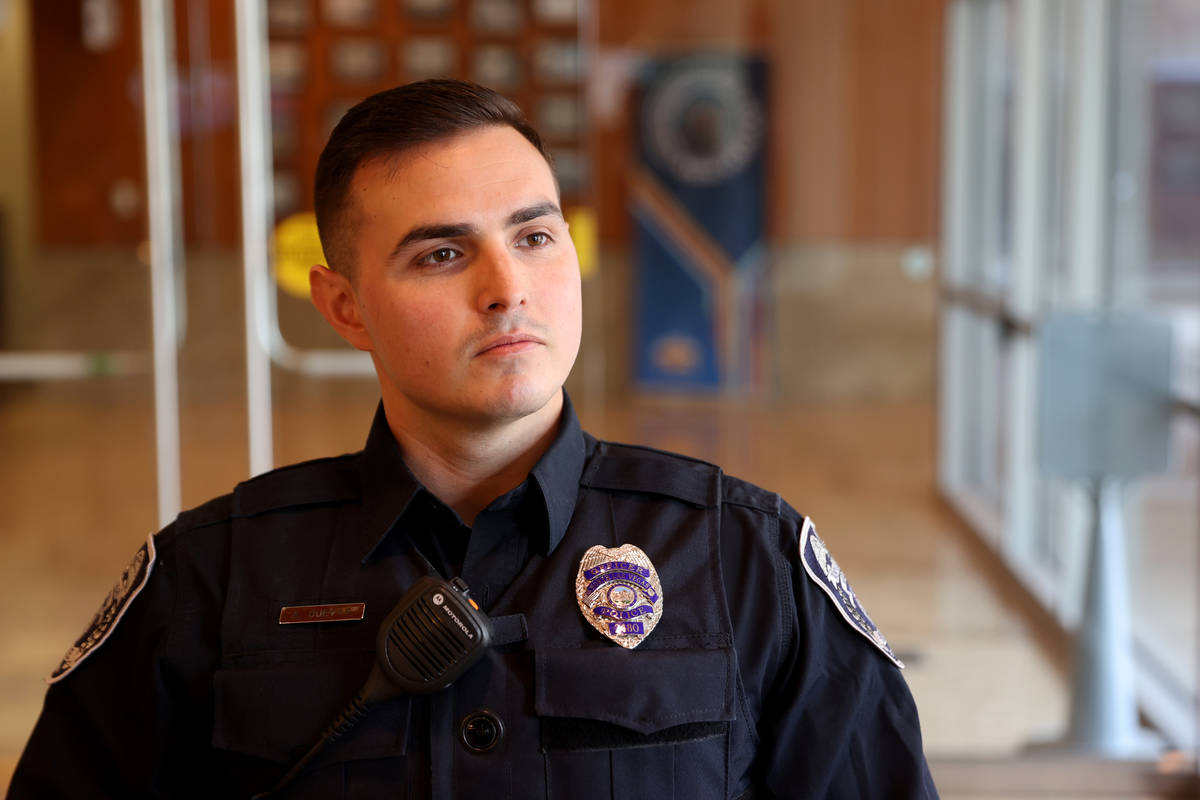
Las Vegas police traffic Lt. Gregory Munson was traveling behind a driver last year when he noticed the man’s vehicle was starting to swerve across the roadway.
“He was all over the road,” Munson said. “He went all the way to the edge and actually hit the curb line with his truck, then came all the way back to center across two lanes of traffic. I pulled him over figuring it was DUI, and he said, ‘No, I dropped my pack of cigarettes on the floor and reached down to grab them, and I pulled on the steering wheel.’ “
Munson recalled thinking at the time: “What if you had gone up on that sidewalk and there was a kid there and you killed him? Sorry is too late at that point. Was that pack of cigarettes worth it?”
These types of distracted driving episodes happen all of the time in Las Vegas, police said this week, and police write lots of traffic tickets for them. Since 2018, Las Vegas police traffic detail officers have written 44,890 violations for distracted driving offenses. Of those, 65 went to people receiving their third ticket for distracted driving.
“It happens more frequently than it should,” Munson said. “It is an everyday occurrence. You see somebody on the phone, putting on makeup, eating a hamburger, food, drinking sodas.”
Andrew Bennett, spokesman for the Nevada Department of Public Safety’s office of traffic safety, said a distracted driver faces a $50 fine for a first offense, $100 for a second offense, and $250 for a third offense within seven years.
North Las Vegas police spokesman Alexander Cuevas said in one recent traffic safety enforcement effort officers wrote 40 traffic citations for distracted driving in a matter of hours.
“They are putting other drivers at risk,” Cuevas said. “It is very dangerous.”
So what can be done to stop distracted driving?
Police said it is a combination of enforcement, education and motorists taking personal responsibility when they are behind the wheel. The latter, Munson said, should involve simply staying off one’s phone and paying attention to the road for the well-being of yourself and others.
“I would tell people this: You and I have to take care of each other,” Munson said.
Contact Glenn Puit by email at gpuit@reviewjournal.com. Follow @GlennatRJ on Twitter.